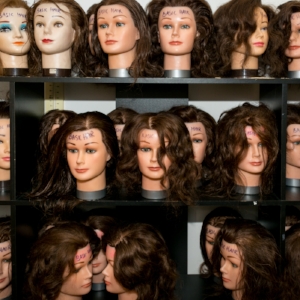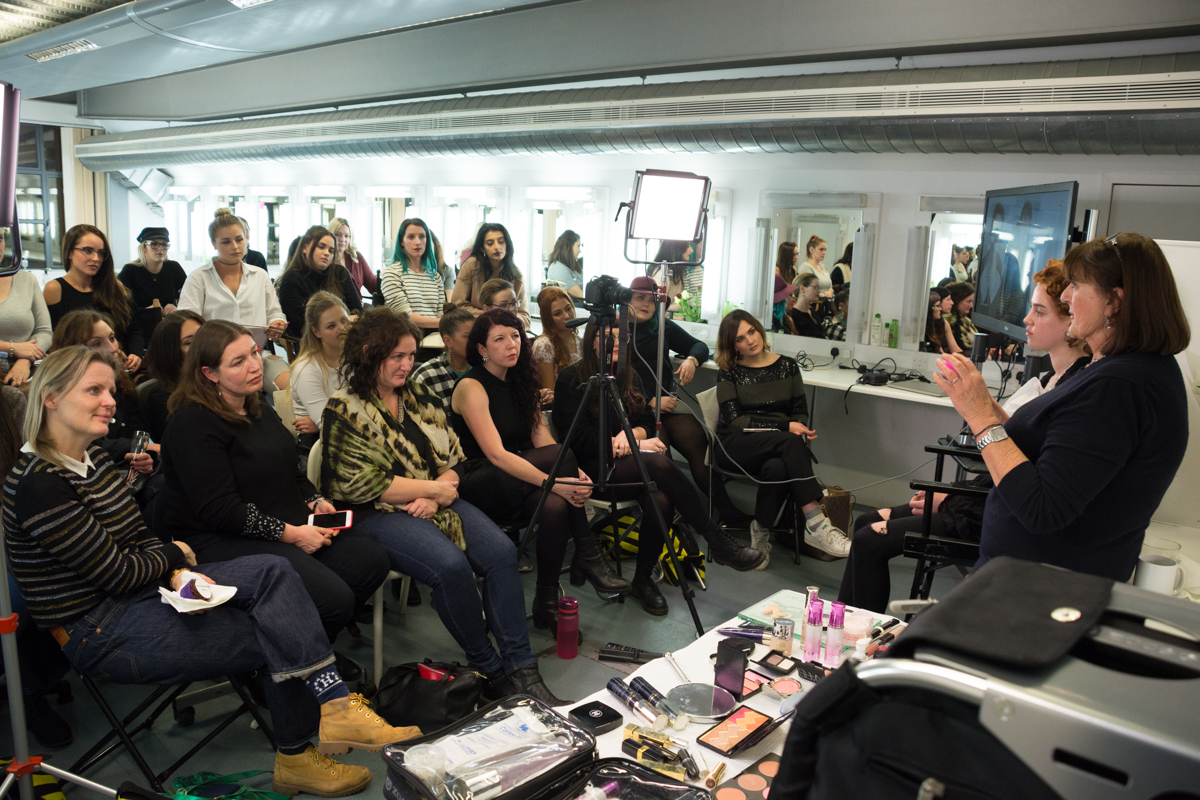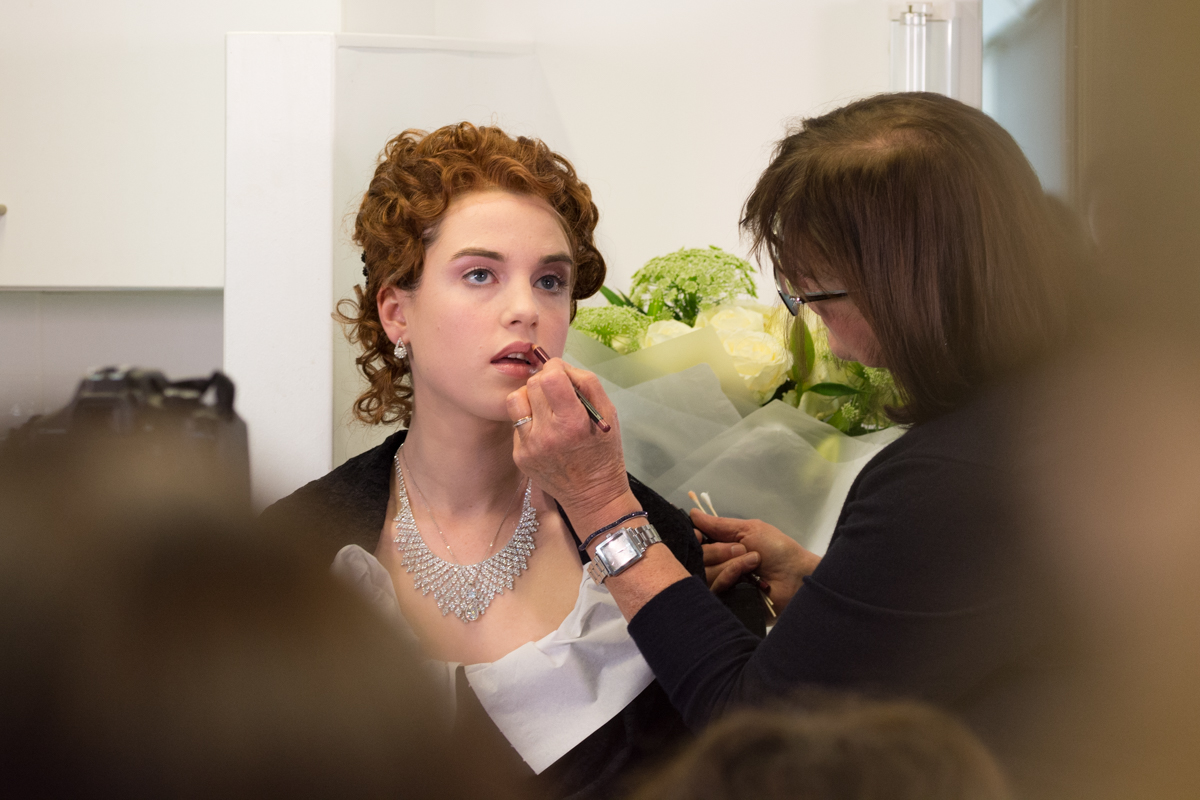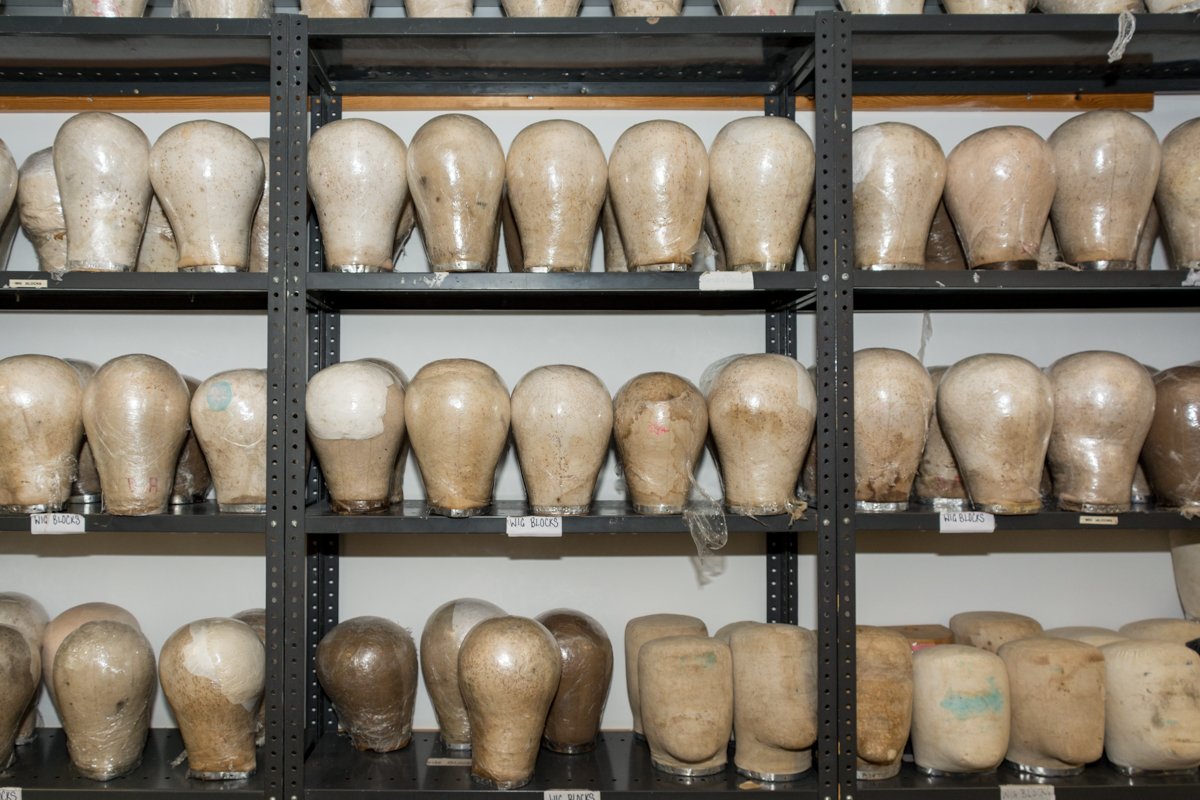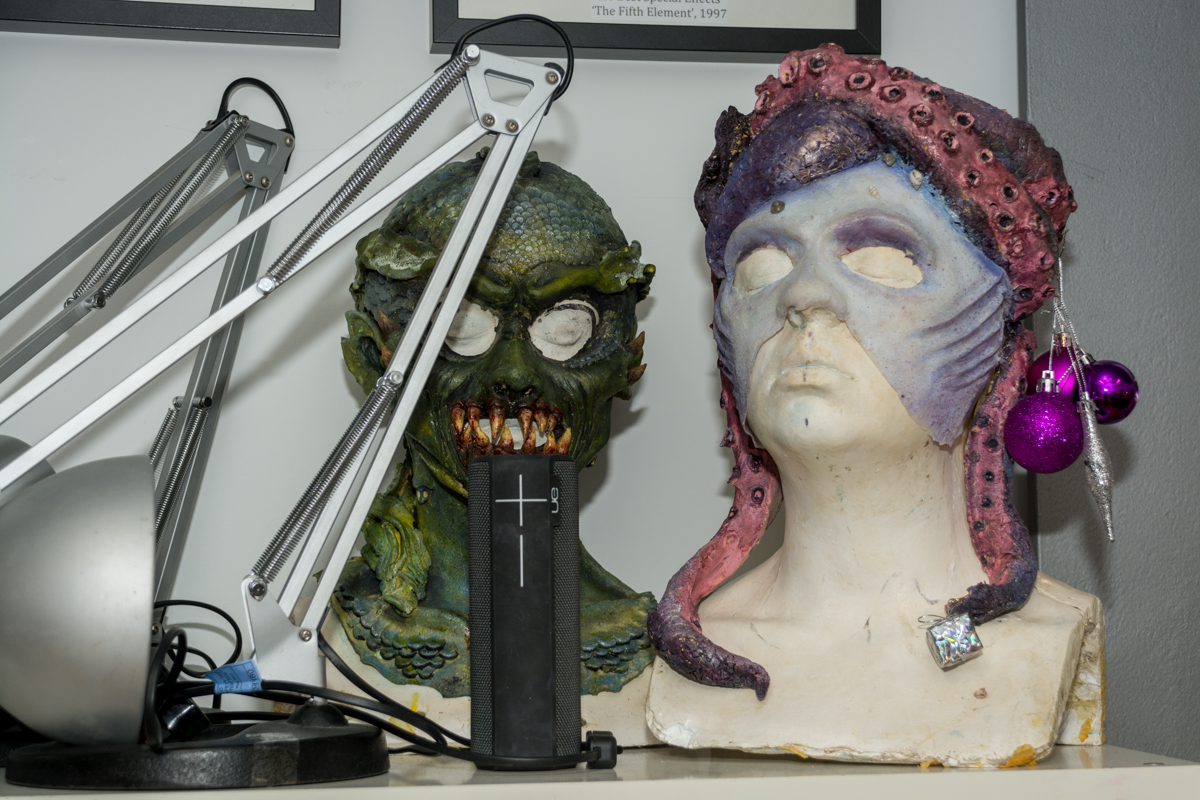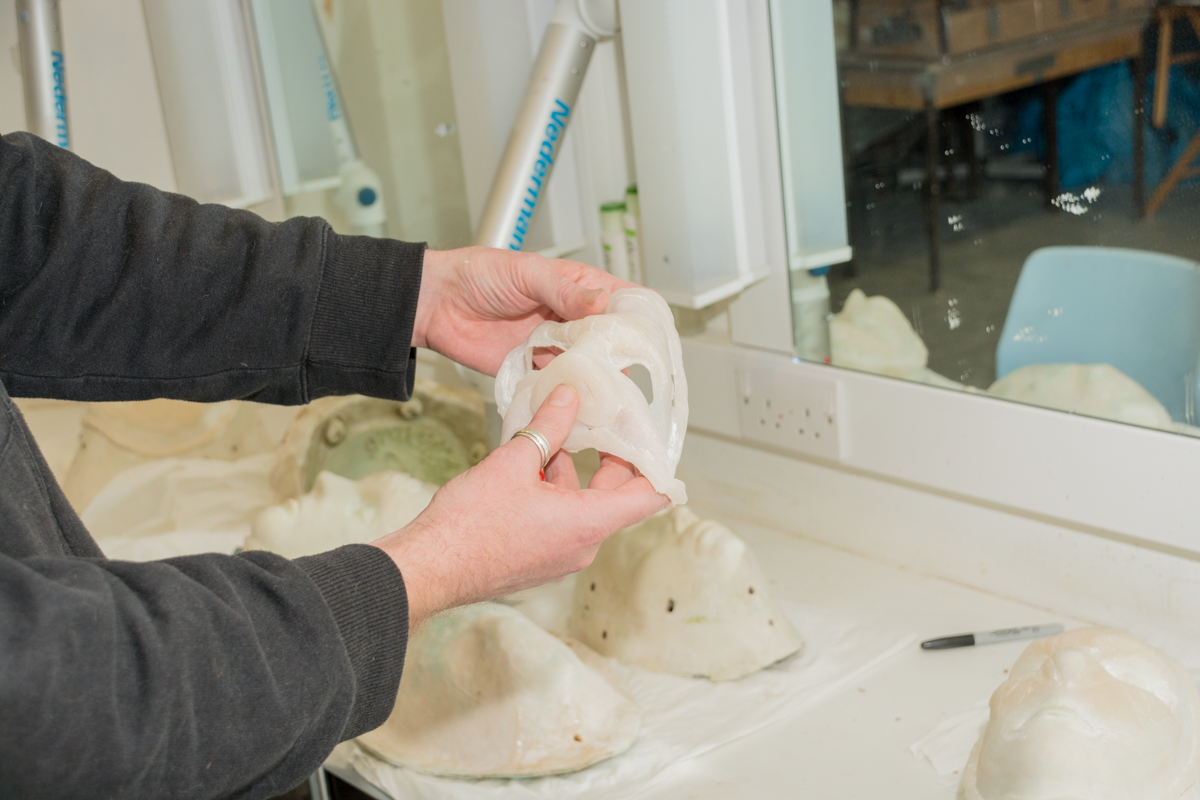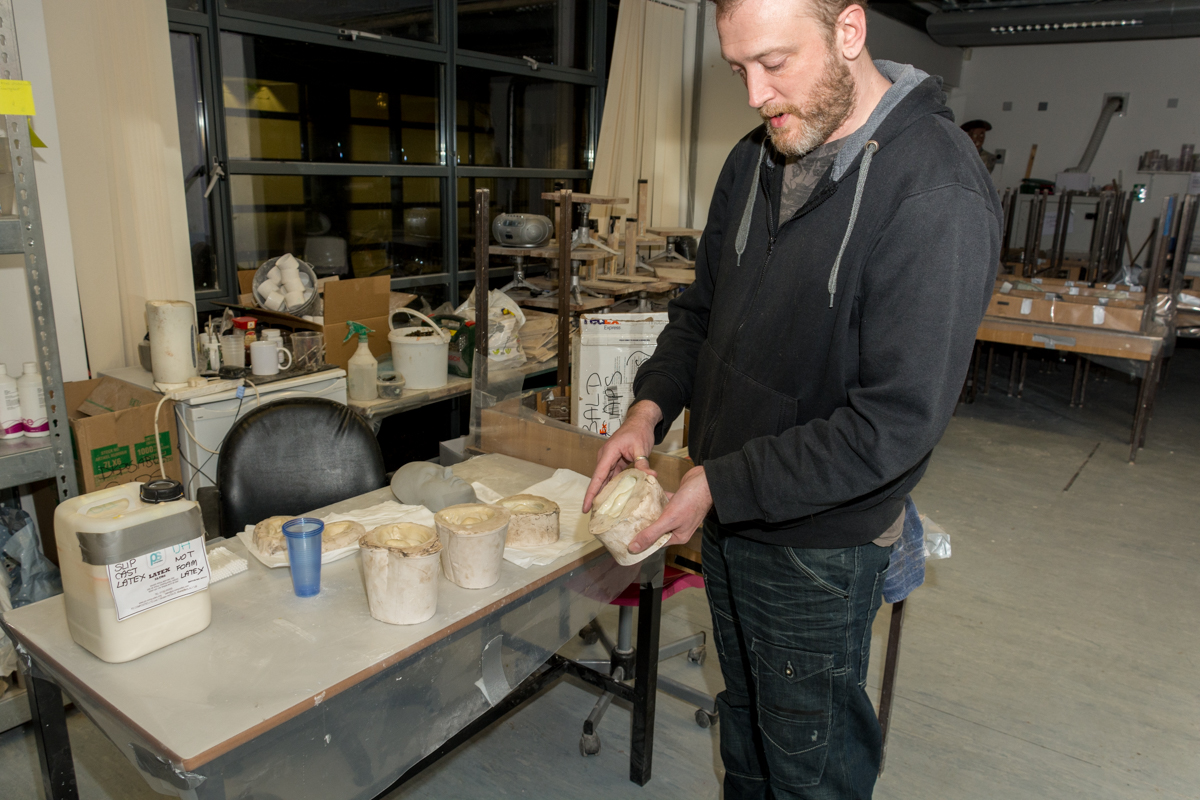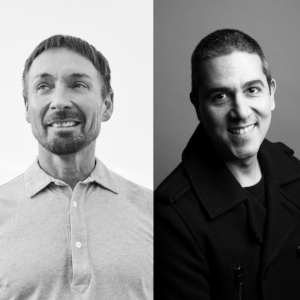This is the fourth post in my series of monthly posts where I speak with people in the creative industries and ask them questions about the things that "I Wish I Had Known" when I started out as a creative myself.
Today I speak with Hamilton Stansfield, Australia-born London-based Hair Artist, about what a career in hair styling is all about:
1. On any given day one can find you working with a celebrity, tending to your private clients, or running 106 km in the Isle of Wight. In a nutshell, who is Hamilton Stansfield?
All of the above inclusive and more, but I'm not defined by what I do. I’m a driven, ambitious, motivated, energetic, relentless creative. I’m always looking to push the creativity and I try to work or collaborate with people who are also driven to keep trying something different, something fresh.
2. Hairdresser, Hair Stylist, Session Hair Artist... what is the difference?
A Hairdresser is someone who encompasses all the skills that are generally needed for the public, which involves cutting and colouring, blow-drying, and styling.
A hairstylist is generally somebody skilled essentially in styling. Not all of the support work that gets it to there. Generally speaking. So just the dressing out of hair as in most shoots, which sometimes involves wigs and hair pieces, sometimes it does not. Sometimes it involves having knowledge and skills about cut, colour and all the other elements of texture. Often times, not. It is not about the needs of bringing out the best of a person necessarily. It's often working with a model or celebrity, so many times hairstylists don't necessarily have a strong ability to bring out the person within the creativity. Sometimes the creativity of the hairstylist just pops on that person. It's less to do with the person or finding out what the person is about because it's not always the context. If it's a model, especially if it's a model, but sometimes even the same with an actress or a celebrity. Sometimes they look like they're wearing a hairstyle rather than being just them.
Then a session hair stylist is the next level, where you can pretty much do it all. But It's infinitely creative. Every time you don't copycat, you bring something new. Because you do have all of the skills: you can do wigs, you can do hair pieces, you can completely change who that person is because it's less colour-by-numbers. A session hair stylist truly reinvents somebody. Like Sam McKnight or Malcolm Edwards, for instance. You see their work and you can tell that's something!
You can be all of the above, but generally, you break them into these categories.
3. How did you start working with hair?
My step-father's nephew from his first marriage was a renowned hairdresser in Australia. I was coming out of a very complicated time and he connected me up with the craft. And I just devoured it. And then I couldn't stop. Courses, working, extra training, wigs, makeup, learning, learning, learning.
Then acting came after five years of doing hair. I went to NIDA, which is a known drama school, and I auditioned with a friend and went into the Actors Centre. In the meantime, I did hair to support acting. But, as with many actors, I didn’t make a career of it. Thankfully, I had something else that I could do. I started working with celebrities because I understood them. I had been on both sides. So I continued on to make a good living out of hair.
4. What is the path for a creative who decides to follow a hair styling career?
In Australia, you have to do four years. It's a degree. Here in the UK, you can do six months, the same in the US. Six months or a year, and then you're left to do it, but you really don't know what you're doing. You haven't studied the physiology or the chemistry of all the elements to do it properly. You just had a faff around with hair, but you don't know what you're doing. You don't know what the chemicals are made of or how the elements come together. You don't know the substance behind it, you just know how to contort hair. But you don't know why and how, you don't have the substance behind it.
5. Are there any sort of specializations in the field or do you need to know it all about styling, colouring, treatments, etc?
Specialization depends on which way do you want to go. If you want to do commercial work, TV and catalogue, or you want to do bridal or do fashion, or you want to do extreme fashion, or you want to do campaigns, or do film. Do you want to do stuff that is 9 to 5 or do stuff that is infinitely creative? It depends on where you want to go. It's like saying: “what do I need in order to go on that trip?” Well, where is your trip to? You have got to know where you're going to go. How can you know how to get somewhere if you don't have an idea of where you want to go?
6. You often hear that makeup artists are expected to know how to do hair... are hair stylists expected to know how to apply makeup?
It's definitely different categories. This really intrigues me and I have thought about it quite a few times because people have asked me many times before: “what do you enjoy more hair or makeup?" Not to be confused with the male or the female gender, but hair is much more about masculine energy, about taking control, being strong with a manipulative force. Makeup is much more about the feminine energy, much more painterly, reflective, touching, perceiving, understanding, feeling what's going on. So they are different energies. Of course that’s a generalization because you can have aggressive makeup, but generally makeup requires a softer touch and generally hair requires to take charge of it. Some people are wired in a way that they can handle the amount of energy and attention to detail. And some people are not. Some people benefit either way. That's a little bit out there but that's my view of it. It has nothing to do with the gender. It has to do with the energy of the person.
7. I know that you are represented by an agent, but I believe that you also work directly with your own clients. Would you say that your career gives you the flexibility to work in a salon, as a freelancer and with agencies without having to stick to one business model at once?
Absolutely. I've deliberately done it. I've had salons before, managing staff and people, and it requires a lot of energy and time. I'd rather just do the work. I have an agent. She essentially does the paperwork and does it pretty well, but my clients come directly to me. I have just shy of 400 clients that come to me and to my place which means I'm available from 7 a.m. to midnight almost every day. And then when I have a shoot they know that that takes priority and they get moved. And they understand that.
Those clients involve people from all over the world. I'm very lucky that they fly me there or they fly to me. Lots of people come to my atelier, which is a two chair salon and it is very much one on one. Very personal. Anytime, day or night. As a client, you're not dealing with any public or anybody else. Total attention to you, and for that you pay a premium. But they enjoy it. Once they get away from the mindset of a salon they prefer that they can come here any night or any day or any morning they can. They are also quite happy to fly me to other countries to do that as well.
All this involves complete autonomy from anybody telling me what to do. Financial independence on a creative level. So I don't do things like catalogues anymore. That doesn't interest me at all. Neither anything that's kind of generic or not creative because I don't have to. It's not interesting. The more you simplify life, the better. If I had a salon, and staff, and those insurances, and those expenses, and those things to take care of, that would be less energy that I have for the people I'm working with. My clients. Whether it is in the atelier or whether it is on a shoot. It's more money in, less money out. It’s more energy into what I'm doing, less energy wasted on stuff that doesn't return. So you want to maximise what's coming in and minimise what's going out. That's the business model.
8. Apart from working with private clients and celebrities, you also collaborate with photographers in photoshoots. How does that come about and why do you think that it is important to collaborate with other creatives?
If you don't put yourself into new situations you won't challenge yourself in new ways. Creative collaborations come to me. I generally don't hustle anymore. Not unless it's somebody that I really like.
9. What advice would you give to someone who is thinking about embarking on a hair styling career?
Work on your skills and your craft. Work on you. Know what you do and why you do it and don't do it for the notions of some kind of fame or notoriety, because they won't last. You do this because you love doing it.
10. Where can we see your work and how can people get a hold of you?
The usual suspects: my website and my Instagram.
I really appreciate it, Hamilton! Thank you so much for answering my questions and letting me take a peek into what a Hair Artist career is about. This is everything that "I Wish I Had Known"!


